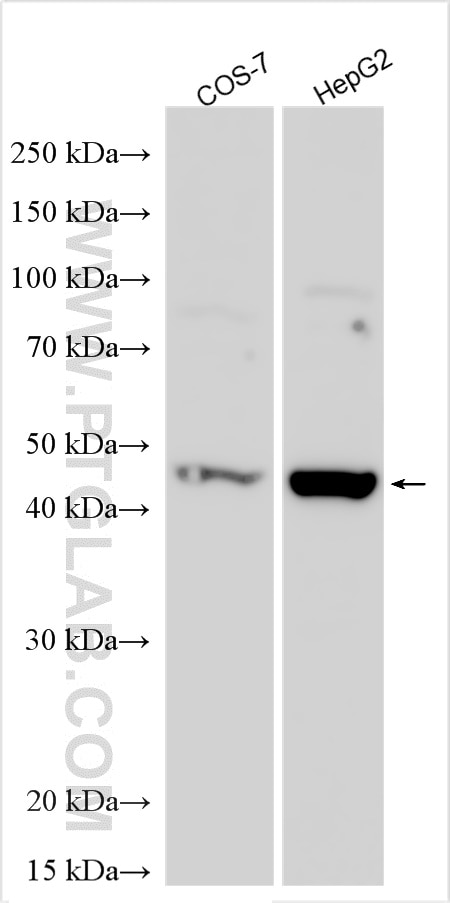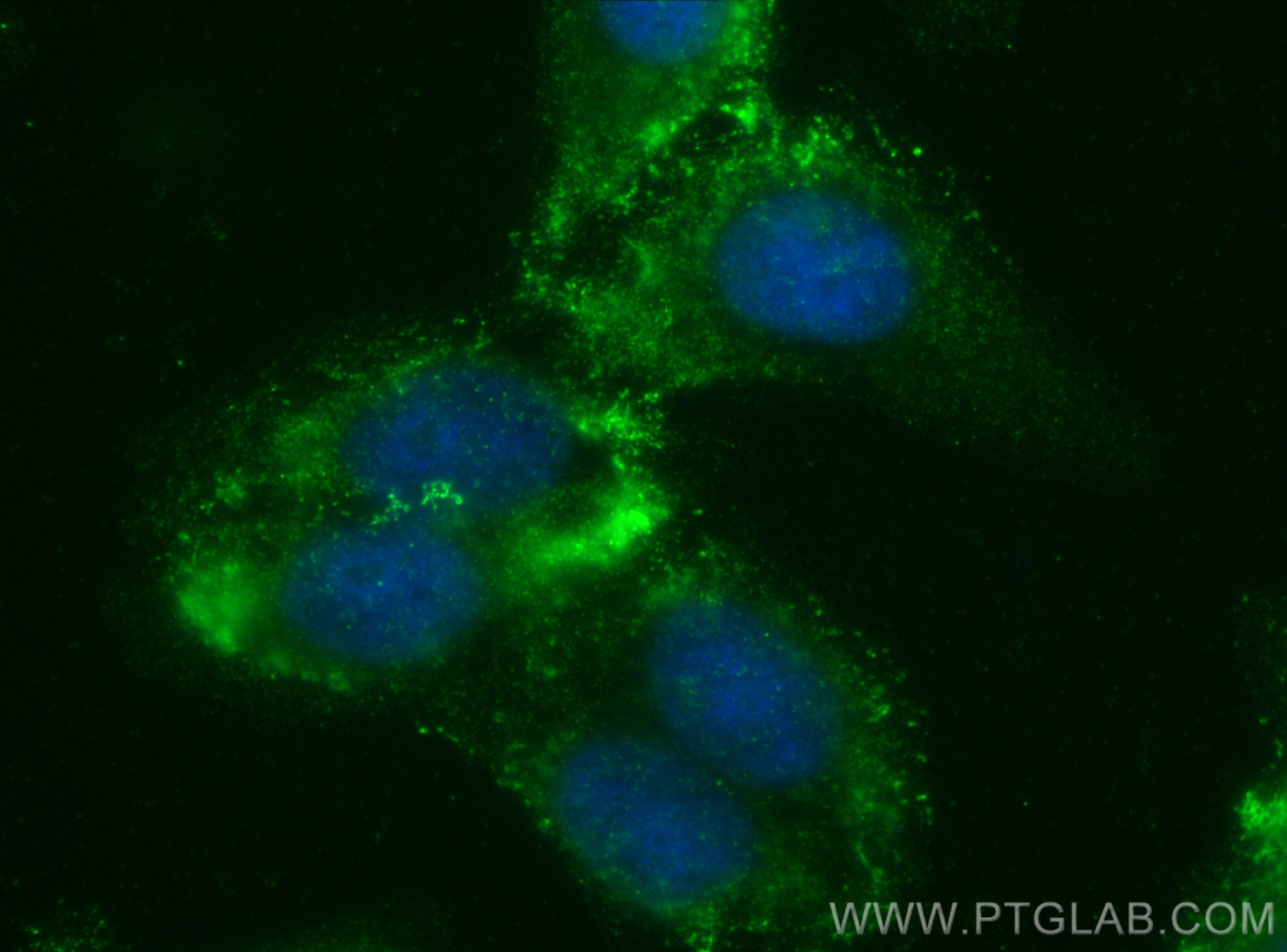Tested Applications
| Positive WB detected in | COS-7 cells, HepG2 cells |
| Positive IF/ICC detected in | HepG2 cells |
Recommended dilution
| Application | Dilution |
|---|---|
| Western Blot (WB) | WB : 1:500-1:1000 |
| Immunofluorescence (IF)/ICC | IF/ICC : 1:50-1:500 |
| It is recommended that this reagent should be titrated in each testing system to obtain optimal results. | |
| Sample-dependent, Check data in validation data gallery. | |
Product Information
29330-1-AP targets Renin in WB, IF/ICC, ELISA applications and shows reactivity with human, monkey samples.
| Tested Reactivity | human, monkey |
| Host / Isotype | Rabbit / IgG |
| Class | Polyclonal |
| Type | Antibody |
| Immunogen | Renin fusion protein Ag31071 Predict reactive species |
| Full Name | renin |
| Calculated Molecular Weight | 45 kDa |
| Observed Molecular Weight | 45 kDa |
| GenBank Accession Number | BC047752 |
| Gene Symbol | Renin |
| Gene ID (NCBI) | 5972 |
| RRID | AB_3086119 |
| Conjugate | Unconjugated |
| Form | Liquid |
| Purification Method | Antigen affinity purification |
| UNIPROT ID | P00797 |
| Storage Buffer | PBS with 0.02% sodium azide and 50% glycerol, pH 7.3. |
| Storage Conditions | Store at -20°C. Stable for one year after shipment. Aliquoting is unnecessary for -20oC storage. 20ul sizes contain 0.1% BSA. |
Background Information
Renin is an aspartic protease that consists of 2 homologous lobes, produced as pre-prorenin protein and transferred into the cisterns of the endoplasmic reticulum. Renin is mainly produced and released into circulation by the so-called juxtaglomerular epithelioid cells, located in the walls of renal afferent arterioles at the entrance of the glomerular capillary network (PMID: 16525949).REN has 2 isoforms produced by alternative splicing with a molecular weight of 45-47kDa.
Protocols
| Product Specific Protocols | |
|---|---|
| WB protocol for Renin antibody 29330-1-AP | Download protocol |
| IF protocol for Renin antibody 29330-1-AP | Download protocol |
| Standard Protocols | |
|---|---|
| Click here to view our Standard Protocols |





